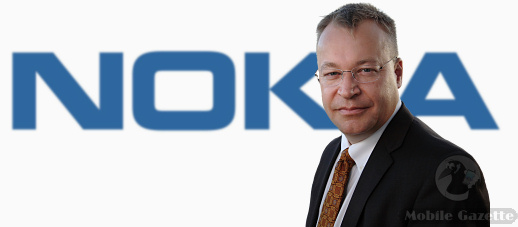For a long while now there have been rumours that Microsoft might be interested in buying some or all of Nokia, and now those rumours have come true with the agreed €5.44bn acquisition of Nokia's mobile phone business.
The forthcoming purchase vindicates analysts and commentators such as Eldar Murtazin who have been saying categorically that the acquisition was on the cards despite flat denials from Microsoft and Nokia.
It also adds weight to the conspiracy theory that CEO Stephen Elop was a Microsoft plant all along (having previously been a senior executive at Microsoft). Elop's choice of Windows for as its primary smartphone platform has always been controversial.. but in our opinion is was a carefully considered long-term choice but with a higher risk/reward factor than backing Android. In our view, ditching the Symbian platform was a mistake which led to a catastrophic drop in sales, but Symbian would not fit in well with Microsoft and that is all in the past now.
Elop will now move from his CEO role to being the Vice President, Devices &
Services along with a number of other key personnel. Elop and that team will most likely be transferring back to Microsoft, along with 32,000 other Nokia employees. In the meantime Risto
Siilasmaa will take over as interim CEO.
Oddly, the $5.44bn ($7.4bn) acquisition is substantially less than the $12.5bn that Google paid for Motorola. But the difference here is that Microsoft is not buying the patents from Nokia, but is licensing them for 10 years and Google bought Motorola along with all of its substantial intellectual property portfolio.
Microsoft will continue to make phones based on Windows, and the Series 40 and Series 30 operating systems (including the Asha range), and is licensed to use the Nokia brand for the next 10 years. Nokia will retain the intellectual property and patents along with the profitable NSN business, the HERE Maps and Navigation business and will continue to develop products based on its IP porfolio. However, Nokia will not be able to use its own brand on any mobile device product until 2016.
Pre-market trading in Nokia shares has boosted them by 40% or so, a clear indication that shareholders are pleased with this new arrangement.. although the current $5.43 price is a fraction of the $39 or so that they were at the end of 2007. Microsoft shares dipped slightly by 2% on the news.
This purchase marks the end of an era in the mobile phone business. Now the mobile phone businesses of Nokia, Motorola, Samsung, Sony, LG and of course Apple are all parts of much larger business empires. Out of the big mobile players only HTC and BlackBerry remain independent.. and BlackBerry looks like it too wants to sell its mobile phone business. There are plenty of smaller players too, and upcoming companies such as Xiaomi may use their greater business agility to maintain and grow market niches against these industrial behemoths.
It won't all be plain sailing for Microsoft. Microsoft's previous attempt at a handset range with the Microsoft KIN was an utter disaster, although Windows Phone 8 is gaining some market traction with consumers and certainly the ultra-modern interface is influencing rival software platforms.
Given that Steve Ballmer is stepping down as CEO of Microsoft, Stephen Elop's forthcoming transition to a Microsoft employee again is interesting. We don't think that the move will lead to Elop becoming Microsoft's CEO though as he still has a lot to prove with the Nokia handset division. But if this purchase is a success.. and that's a big if then perhaps Elop will get the top job the next time around.



No comments:
Post a Comment